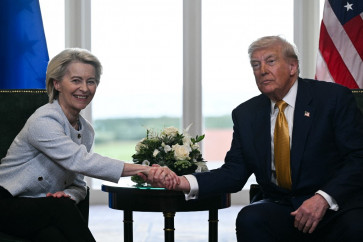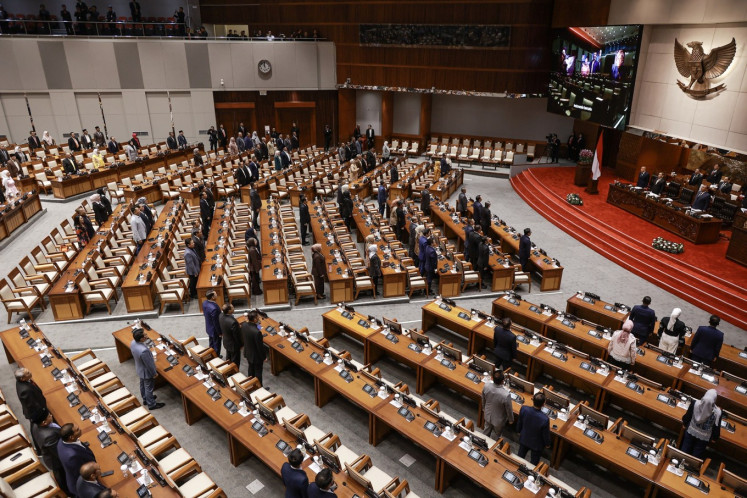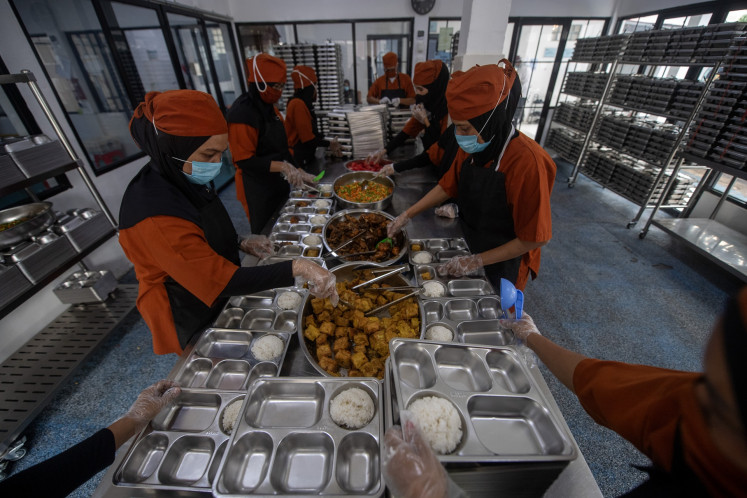Popular Reads
Top Results
Can't find what you're looking for?
View all search resultsPopular Reads
Top Results
Can't find what you're looking for?
View all search resultsCorruption remains major predicate crime
Corruption is still the major predicate crime linked to suspicious transactions analyzed by the Financial Transaction Reports and Analysis Centre (PPATK) and submitted to law enforcers, an official says
Change text size
Gift Premium Articles
to Anyone
C
orruption is still the major predicate crime linked to suspicious transactions analyzed by the Financial Transaction Reports and Analysis Centre (PPATK) and submitted to law enforcers, an official says.
PPATK chief Yunus Husein said that 714 reports, or around 40 percent of 1,679 suspicious transactions analyzed by the center and processed by law enforcers were linked to corruption-related crimes.
“This is in line with the ratings given by international agenciessuch as Transparency International, which scored Indonesia 2.8 on its corruption perception index [last year], or the Hong Kong-based Political and Economic Risk Consultancy, which for the past two years has considered Indonesia the most corrupt nation in Asia,” Yunus said on Friday during the signing of a memorandum of understanding with representatives of Bank of Indonesia and University of Indonesia’s Law Faculty to establish a center to study money laundering.
According to the TI’s 2010 corruption perception index, Indonesia scored 2.8 out of 10, unchanged from 2009, placing it 110th out of 178 countries measured.
Meanwhile, based on its 2010 survey, the PERC said Indonesia was the most corrupt nation among 16 investment destination countries in the Asia-Pacific region. Yunus said the 434 cases linked to the use of fake ID cards, representing 25.85 percent of the analyzed reports, were the second most common offense.
“This happens because we don’t have a single identification system. If such a system had been established, it would have helped us a lot,” he said, adding that banks were allowed to halt transactions whenever their customers used fake documents, including false identity cards.
PPATK’s data shows that the 1,679 reports of suspicious transactions that were analyzed and followed up by law enforcers were part of 74,614 reports of suspicious transactions submitted to the center as of June by 160 banks and 199 other non-bank financial institutions, including foreign exchange traders, securities companies and leasing companies.
PPATK first filed reports of suspicious transaction reports in 2001.
In a speech given at the event, Muliaman D. Hadad, Bank Indonesia’s deputy governor for banking research and regulation, said that the establishment of a money laundering research center would help government efforts to fight crime.










